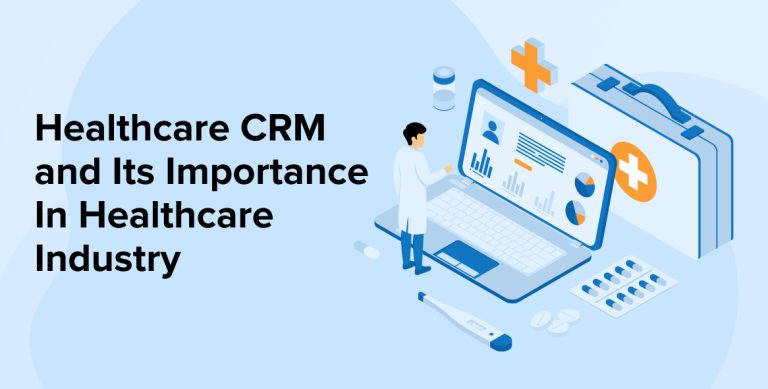
The healthcare business is a fast-paced, thriving sector in which new technology and innovation work in tandem to improve human health. Additionally, governments around the world make it a priority to ensure that healthcare reaches the grassroots.
Environmental changes, the evolution of new viruses, and climate variations all impact how people respond to a variety of environmental influences and illnesses.
In short, the healthcare industry faces several hurdles in the course of its daily operations. When there is so much to handle, completing things manually is a difficult task.
In this article, we will be discussing how incorporating a CRM into the healthcare business might result in significant changes to the healthcare industry operations.
1. What is a Healthcare CRM?
A healthcare customer relationship management (CRM) software is a tool developed by healthcare software development companies specifically for healthcare providers like clinics, pharmacies, to engage with patients.
With a CRM in healthcare, healthcare institutions may adhere to the finest client administration practices and maintain accurate user information. Additionally, patients can schedule and manage doctor visits online by using an online medical platform. Healthcare CRM software generates important statistics and data that may be used to analyze the clinic’s operations daily.
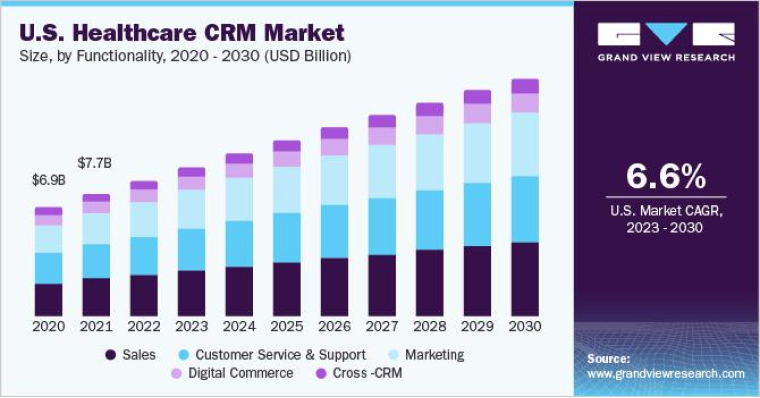
In 2021, healthcare CRM was a 7.7 billion US dollar market and is expected to have a CAGR of 6.6% from 2023 to 2030. The recent technological advancements and the need for structured data and automation are the major factors that are driving this market growth, and increasing the demand for healthcare-based customer relationship management.
2. Types of Healthcare CRM Software

Here are three main types of CRM software available in the market for the healthcare industry:
2.1 Analytical CRM
Analytical CRM is used by healthcare providers to collect data about patients and store that for future purposes. This type of software makes the communication between medical organizations and patients very smooth and organic. With the help of CRM, the doctors can treat their patients differently and patients can get immediate responses required for urgent health issues from the doctors.
2.2 Collaborative CRM
A collaborative CRM is a type of healthcare software that enables hospitals to manage communication with patients via different channels. It can be via phone, SMS, emails, newsletters, chatbots, or more.
2.3 Operational CRM
Operational CRM helps healthcare organizations in enhancing their operations and automating their services. Besides this, operational CRM also helps streamline hospital tasks, enhances marketing and lead generation operations, and more.
3. Benefits of Healthcare CRM System
Some of the major benefits of the Healthcare CRM system are:
3.1 Improve Patient Experience:
When it comes to visiting healthcare organizations, patients have to book an appointment and then wait in the queue to get their checkup done. But with CRM software coming into the market, the hospitals have now started taking online appointments and online consultancies whenever possible as per disease. This not only helps patients get quick responses but also enables healthcare providers to streamline their services.
3.2 Security of Data:
When it comes to using online services, the chances of security breaches are always there and the same goes with online healthcare services. However, CRM software helps healthcare organizations improve safety by encoding confidential patient information. It also enables the admin staff to set up authorities in the software as per the user’s role and designation.
3.3 Managing Reports, Metrics, and Dashboards:
With CRM software, healthcare providers can easily store the patient’s data and have smooth communication with them. Besides this, it enables patients to easily reschedule their appointments and helps doctors monitor patient appointments. Doctors can manage patients’ reports from the stored records.
3.4 Enhances your Process of Billing:
CRM software helps hospitals enhance their billing operations. This software enables gathering and upgrading customer payment information.
3.5 Automate Resource Management:
With CRM software coming into the picture, it has become easier for doctors and other hospital staff members to coordinate patient’s appointments, treatments, and admissions easily. Besides this, CRM also keeps a record of the doctor’s and other medical resources’ attendance details which can help them know who is available to carry out healthcare operations for the patients.
3.6 24/7 Support:
CRM is software that keeps records about patients and their treatments which makes it easy for the doctors to access the data anytime they want. It also benefits the patients as they can get 24/7 support from the healthcare organization without any requirement to carry medical files at the time of emergency.
3.7 Collect Feedback:
This software allows patients to give their feedback for the treatment they are getting, the staff members of the hospital, and more. This feedback helps the healthcare providers to improve their services and maintain their client base.
3.8 Saves Time and Resources:
With the use of CRM, hospitals and patients get access to the automated ecosystem where everything from booking an appointment to billing is done via software which saves several hours for a patient. In the same way, it helps doctors and other medical staff to manage everything smoothly without any requirement of extra resources.
3.9 Ensures Digital Compliance:
CRM is software that takes digital compliance very seriously in order to secure the confidential data of any patient.
3.10 Offers a Hassle-Free Medical Experience:
With CRM, patients get an automated reminder for their next doctor’s appointment and the doctor gets notified of the same. Similarly, it offers reminders for medication history, health insurance, and more. This makes the medical experience a very hassle-free process.
4. What are the Drawbacks of Healthcare CRM
Here are some of the drawbacks of a healthcare CRM:
4.1 Availability of Data:
Hospitals need data to provide personalized experiences to the patients but for that, the CRM has to seamlessly communicate with the EHR and HIS of the hospital. If this is not done the right way, patients’ data is not gathered properly and it affects the services.
4.2 The Systems of This Type are Expensive:
Implementing CRM is very costly and cannot be afforded by all healthcare providers. The reason behind this is that CRM implementation includes the cost of ownership of software subscription, customization, IT resources, premium upgrades, and staff training.
4.3 Configuration is Not Simple:
Configuring CRM into the hospital management isn’t an easy process. Experts are needed for it, the staff of the healthcare organization needs to be trained for the same, and a lot of time goes behind it.
4.4 Reliance on the Providers of CRM Software:
When any healthcare organization implements CRM, it has to completely depend on the CRM software providers to get its knowledge, service, and upgrades.
4.5 Lack of Leadership:
Weak leadership in CRM implementation plans can cause issues in managing medical operations.
4.6 Business Culture:
Implementing CRM brings a huge cultural change for medical assistants, doctors, and other staff members. Besides this, it also affects the customer relationships with the patients and healthcare equipment providers.
5. Key Features of Healthcare CRM Software
It’s time to explore the features of Healthcare CRM. The following features are not the only ones, customized Healthcare CRM can have more features.
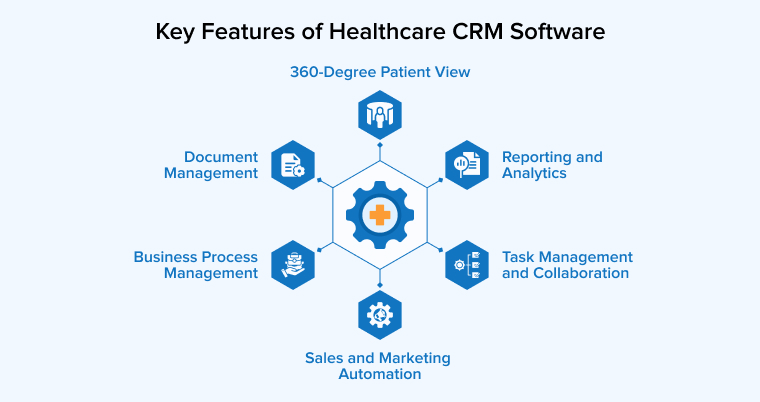
5.1 360-Degree Patient View
This feature enables you to construct a centralized database for all contacts and accounts with whom you interact to get a 360-degree perspective of all clients. You may use the program to maintain track of contact information and the links between accounts within your organizational structure.
You’ll be able to view a list of the activities in which they’re participating and the full history of contacts between your staff and patients. This enables you to forecast patient behavior and preferences, gaining their confidence over time.
5.2 Sales and Marketing Automation
CRM systems may give marketing teams data that can be used to categorize patients intelligently and target promotions more effectively. It streamlines the feedback-gathering process, allowing for a better understanding of the correlation patterns between patients’ requirements.
Simultaneously, assessing patient happiness may assist firms in improving performance, identifying at-risk individuals, and reducing turnover. Lead management is also a critical capability of medical CRM, as it enables timely follow-up on leads and identifies any consistent difficulties with lead nurturing.
5.3 Business Process Management
This capability enables you to automate all internal procedures, from document clearance to cooperation on complicated tasks and projects involving several teams, sometimes also includes a comprehensive collection of tools for managing all business activities successfully.
This includes implementation, planning, tracking, and evaluation. Hence, CRM for healthcare will guarantee that your healthcare facility’s business processes run as efficiently as possible.
5.4 Document Management
All the patient records may be safely kept in a CRM and made available promptly upon request. A selection of built-in templates enables the rapid creation of documentation such as bills and certifications while adhering to regulatory requirements.
Reduced paperwork and automation of record-keeping duties allow personnel to concentrate on customers and high-alert jobs while also cutting expenses.
5.5 Task Management and Collaboration
By automating typical activities, CRM users may remain on track by receiving reminders about upcoming conferences, critical chores, scheduled upkeep, and training sessions, among other things.
It enables departments to share requests and information rapidly, file tickets, and obtain assistance as required. Managers may monitor their team’s progress and timetable to ensure proper job distribution. Workers based in different locations may connect securely and compliantly using a mobile CRM application.
5.6 Reporting and Analytics
Medical CRM software can evaluate and report on data from revenue, advertising, and customer support operations. It enables the identification of conversion-influencing elements, the measurement of campaign outcomes, the identification of the most effective acquisition strategies, and the tracking of sales and marketing performance. Statistical widgets can give a consolidated view of ongoing leads, potential, present, and recommended patients.
6. Importance of CRM in the Healthcare Industry
The advancement of medical science has also resulted in the development of digital healthcare, which makes patient records readily accessible. While digital healthcare is a significant breakthrough, it has also introduced a number of issues. This relates to consumer data usability and privacy concerns. It has sparked a global discussion, with countries enacting a slew of rules and policies to safeguard people’s health information.
Additionally, with the addition of new competitors, institutions have become aggressive, with one vying to outdo the other in offering customized treatment. As a result, hospitals make every effort to increase patient visits. They must have reputable physicians, experts, modern technology, and other means. All of these factors, when paired with a robust CRM, may work miracles.
Additionally, Healthcare Customer Relationship Management software enables the management of a comprehensive patient profile that is securely stored and inaccessible to other parties. The CRM Medical program enables you to effortlessly communicate with patients by text, phone call, or email from any location. Hospitals may utilize this data to keep patients aware of individualized treatment as a kind of branding.
In essence, the accessibility of medical CRM enables the healthcare organization to provide immediate offerings while also enhancing hospital efficiency. By utilizing a fully-featured CRM, hospitals can manage their whole operation from a unified system and avoid costly errors in this critical business.
7. Reasons To Choose Healthcare CRM
After walking through the growth and foundations of healthcare CRM, you may be wondering, “How vital is CRM to the health sector?” Here are some of the reasons why considering CRM is important in your facility.
7.1 Database Management
Patient management software is critical to the efficient running of businesses and customer engagement. When your client records are maintained effectively and securely, you are already midway to obtaining the required satisfaction rate. This is because patient information is priceless information, and it is intolerable if their privacy is jeopardized.
Hospitals may have little fear about data vulnerabilities and unauthorized access with secure healthcare CRM systems. Such Medical CRM helps your healthcare professionals to maintain a centralized database that contains even the most minute details about a specific patient. These documents are organized neatly and may be easily found at any moment without requiring any intervention.
One of the most frequently cited advantages of CRM is its capacity to address different issues from a unified platform. Additionally, the granular access levels restrict access to specific data to authorized personnel while allowing others to examine it. For example, you can restrict access to customer data editing to a single employee. This allows others to see but not alter the data.
There are several rules controlling the protection of patient information worldwide; therefore, it is critical to pick the finest CRM for healthcare practices to avoid any potential complications.
7.2 Collaboration Tools
When operating a facility, communication is a critical area to focus on. Given the truth, patients often interact by booking a visit, confirming schedules, or asking a question. In each of these instances, communication routes serve as a link.
These days, clinics do not rely solely on the telephone network for communication. 24/7 live systems, mobile, webmail, and other connectivity options may help your healthcare industry thrive. When your workers are equipped with the appropriate tools, you can expect to see a significant increase in customer satisfaction.
7.3 Client Portal
Approximately 70% of users anticipate an internet site to contain a self-service app, as per research. This enables clients and guests to access information independently and saves time spent waiting to speak with the appropriate support personnel. Customer service in conjunction with self-service enables support workers to do duties more quickly.
Additionally, hospitals should guarantee that their websites provide solutions to the most commonly asked concerns by clients. By having responses available immediately, support personnel can focus on more urgent duties.
Self-service platforms also relieve support personnel of the task of managing engagements that were not intended to be discussed with them. Additionally, the comprehensive service portal has a strong authentication level that is inaccessible to third-party apps.
8. Conclusion
A healthcare customer relationship management system (CRM) establishes a holistic perspective of every healthcare consumer and patient. Healthcare organizations may hyper-personalize marketing and engagement by delivering a range of user-focused messages depending on contact requests, such as wellbeing tips, schedule appointments, timely remarks, and post-discharge interactions, using these 360-degree customer profiles. A healthcare CRM should combine EHR data to bolster the information provided for tailoring the prospective patient’s journey.
Our professionals at TatvaSoft develop software for a host of medical instruments that are critical for diagnosing, treating, and monitoring patients. Our services aid in the streamlining of operations, the collection of statistical insights, and the provision of prompt, individualized treatment.
FAQ:
What are the Different Types of CRM in Healthcare?
The four different types of CRM in the healthcare industry are:
Strategic CRM
Operational CRM
Analytical CRM
Collaborative CRM
What is CRM Software in the Hospital?
CRM is a software that offers efficient healthcare solutions to help doctors and medical assistants manage & store patient information, enhance patients’ treatment strategies, and improve service & engagement.


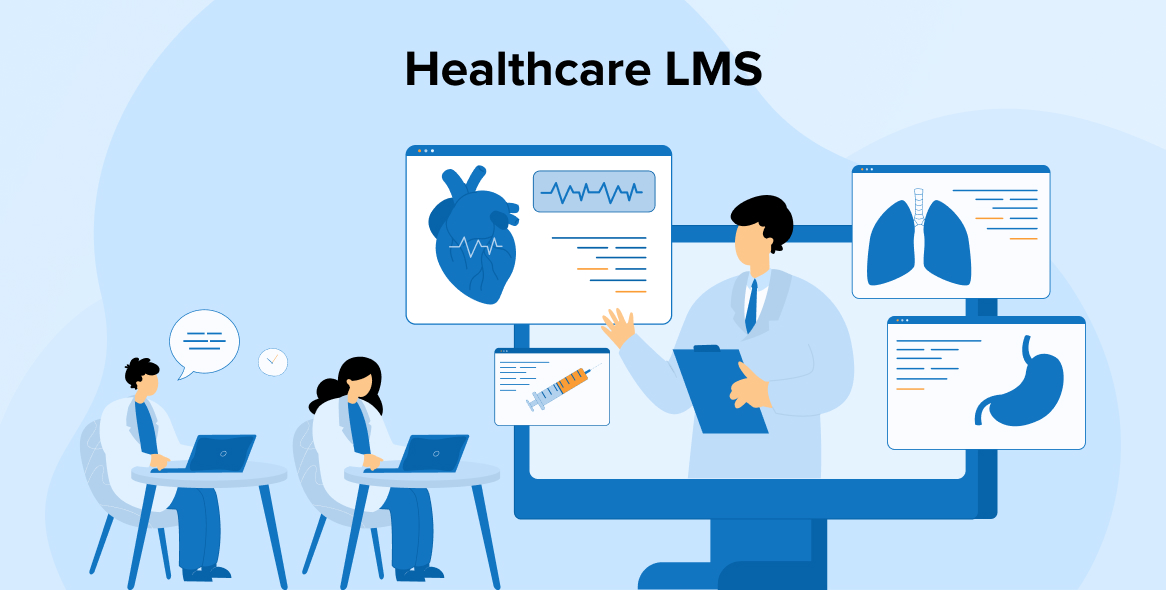
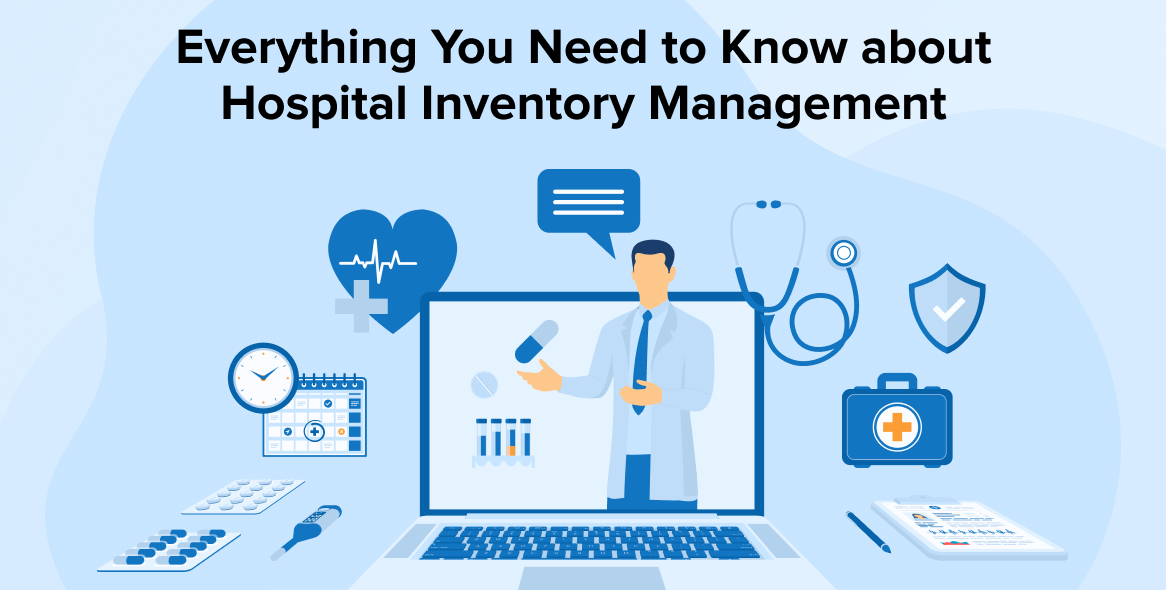
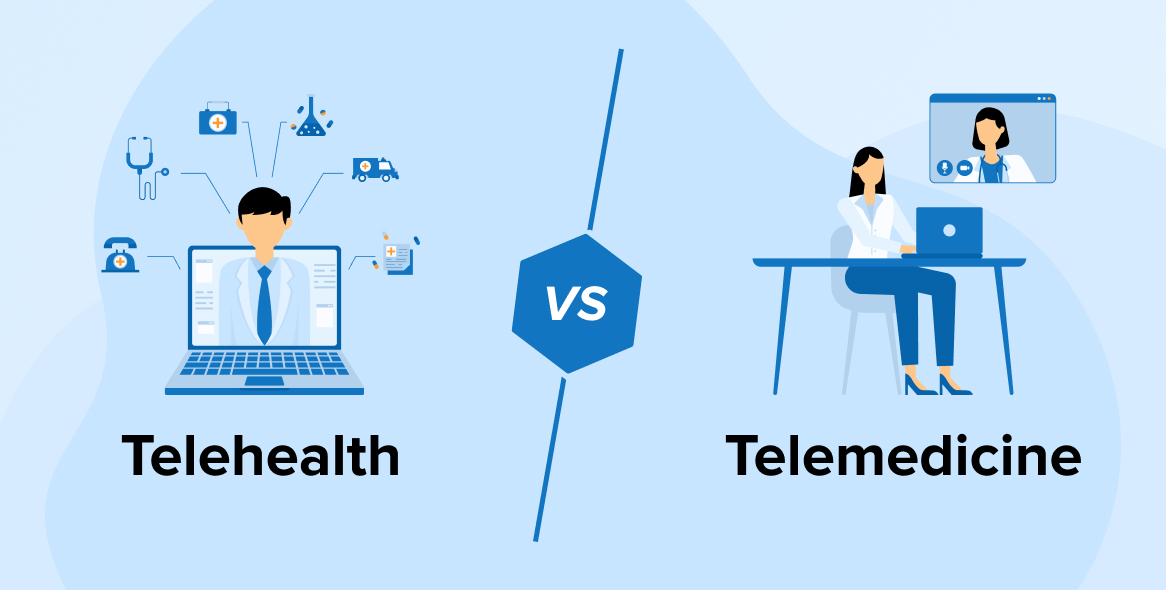

This article provides a comprehensive overview of healthcare CRM, including its features, such as 360-degree patient view, sales and marketing automation, business process management, document management, and other features. I highly recommend this article to anyone considering implementing a healthcare CRM system in their organization.
This article sheds light on the transformative impact of integrating a CRM (Customer Relationship Management) system into healthcare businesses. For newcomers to the industry, this piece provides valuable insights into how such integration can revolutionize healthcare operations.
This article offers valuable insights into the benefits of implementing a Healthcare CRM system. As a healthcare provider, I am particularly interested in how it can improve the patient experience, secure data, enhance the billing process, and overall practice efficiency.